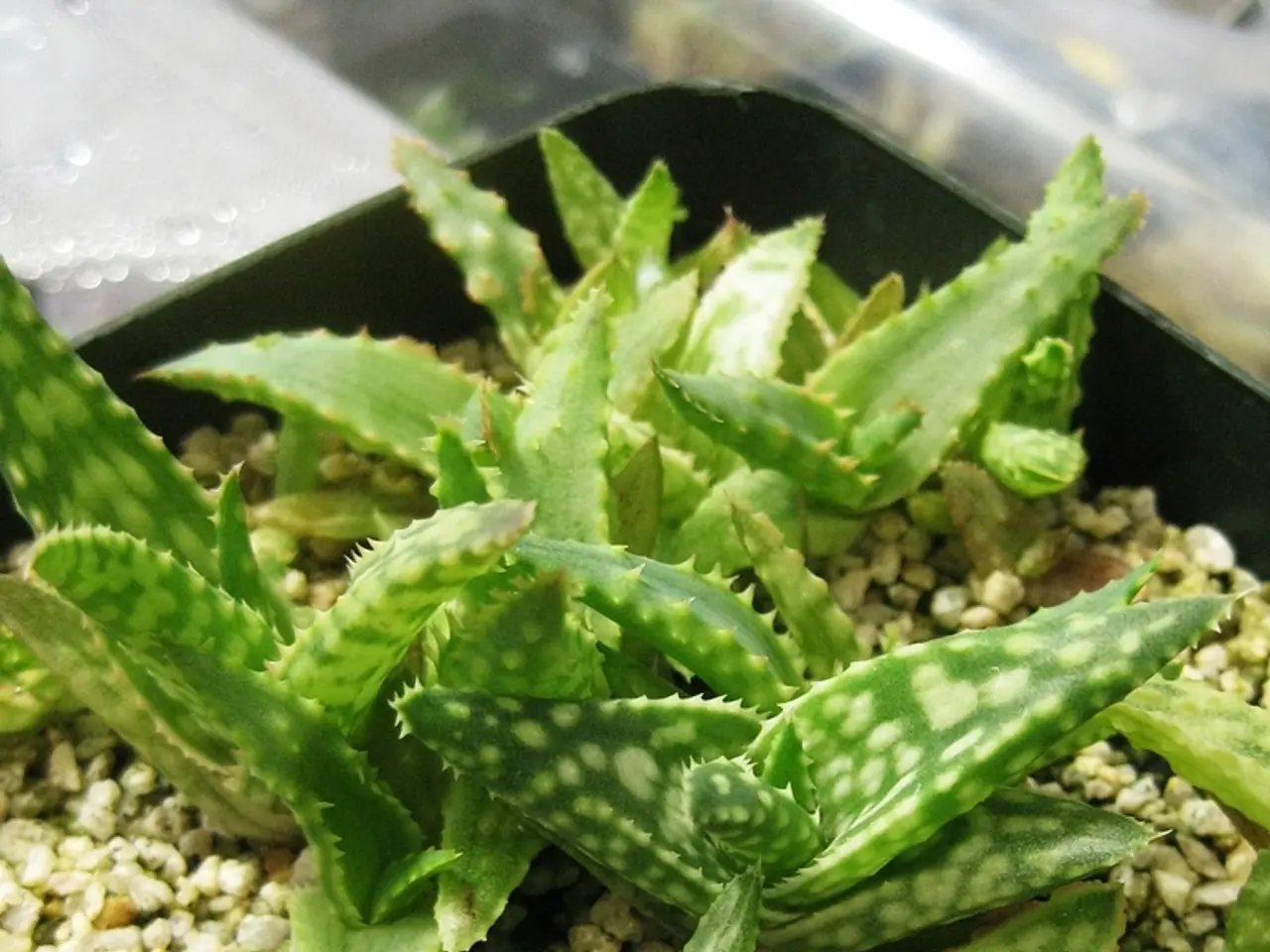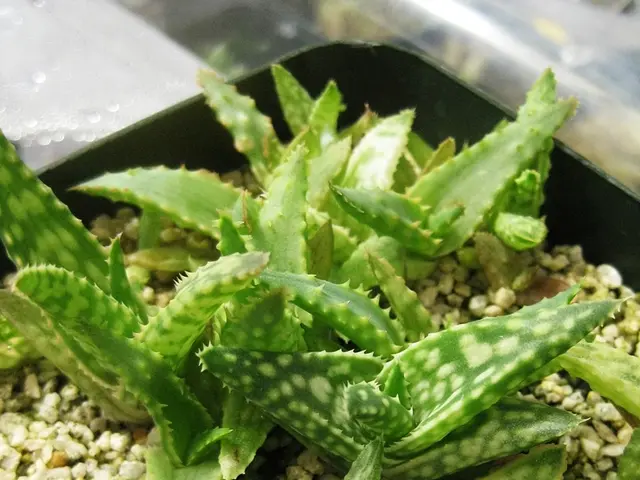Lymphoma Classification: Identifying Anaplastic Large Cell Types, Diagnostic Procedures, and Therapeutic Approaches
Anaplastic Large Cell Lymphoma (ALCL) is a rare type of T-cell lymphoma, accounting for about 1% of all non-Hodgkin lymphoma cases and 16% of all T-cell lymphoma cases. This disease presents in various forms, each with unique features, symptoms, causes, treatments, and prognosis.
Types of ALCL
ALCL can be broadly categorised into three main types: Systemic ALCL, Primary Cutaneous ALCL, and Breast Implant-Associated ALCL (BIA-ALCL).
Systemic ALCL
Systemic ALCL can be either ALK-positive or ALK-negative, depending on anaplastic lymphoma kinase protein expression. ALK-positive tends to occur in younger patients with a better prognosis.
Primary Cutaneous ALCL
Primary Cutaneous ALCL primarily affects the skin with localized lesions.
BIA-ALCL
BIA-ALCL is a rare lymphoma that develops in scar tissue around breast implants.
Symptoms
BIA-ALCL
Symptoms of BIA-ALCL may appear months or years post-implant surgery and include pain, redness, breast asymmetry, lumps or masses, skin changes, tightening of scar tissue, and sudden breast swelling due to fluid accumulation (seroma), which is the most common symptom.
Systemic ALCL
Systemic ALCL symptoms commonly include painless swollen lymph nodes, fever, weight loss, night sweats, fatigue, and sometimes extranodal masses.
Primary Cutaneous ALCL
Primary Cutaneous ALCL presents as nodules or tumors on the skin.
Causes and Risk Factors
The exact cause of ALCL is unknown, but it involves mutations in T cells leading to uncontrolled growth. Breast implant-associated ALCL is linked to textured breast implants, likely due to chronic inflammation. Immunosuppression (e.g., AIDS) increases lymphoma risk and worsens prognosis. Environmental or genetic predispositions may play roles but are not well defined.
Diagnosis
Diagnosis of ALCL relies on pathology and immunophenotyping. Doctors may use a biopsy of skin or tissue, blood tests, a bone marrow biopsy, imaging tests such as CT, PET, or MRI scans.
Treatment Options
BIA-ALCL
Complete surgical removal of the implant and capsule is recommended for BIA-ALCL. Some may require chemotherapy and/or radiation if the disease is advanced. Early-stage BIA-ALCL has excellent prognosis with surgery alone.
Systemic ALCL
Chemotherapy is the mainstay treatment for Systemic ALCL, often using CHOP-based regimens (Cyclophosphamide, Doxorubicin, Vincristine, Prednisone). ALK-positive cases generally respond better and have more favorable outcomes. Newer targeted therapies, such as brentuximab vedotin, are increasingly used in relapsed/refractory cases. Clinical trials may provide access to novel agents being studied for peripheral T-cell lymphomas, including ALCL.
Prognosis
The prognosis for ALCL varies widely but is favorable in certain types, especially BIA-ALCL and ALK-positive Systemic ALCL. Immunosuppressed patients have a higher risk and poorer outcomes. Late-stage or relapsed disease has a worse prognosis despite therapy.
In summary, ALCL includes distinct subtypes with variable presentation from localised skin lesions to systemic lymphoma or implant-associated lymphoma. Diagnosis relies on pathology and immunophenotyping. Treatment involves surgical removal (for BIA-ALCL), chemotherapy, radiation, and targeted therapy. Prognosis varies widely but is favorable in certain types, especially BIA-ALCL and ALK-positive Systemic ALCL.
- The rare breast implant-associated ALCL (BIA-ALCL) is linked to medical-conditions like cancer and is a concern in the health-and-wellness community, as it develops in scar tissue around breast implants due to chronic inflammation.
- The science behind Anaplastic Large Cell Lymphoma (ALCL) explores various medical-conditions, including breast cosmetic surgery, as BIA-ALCL is associated with textured breast implants used in such procedures.




